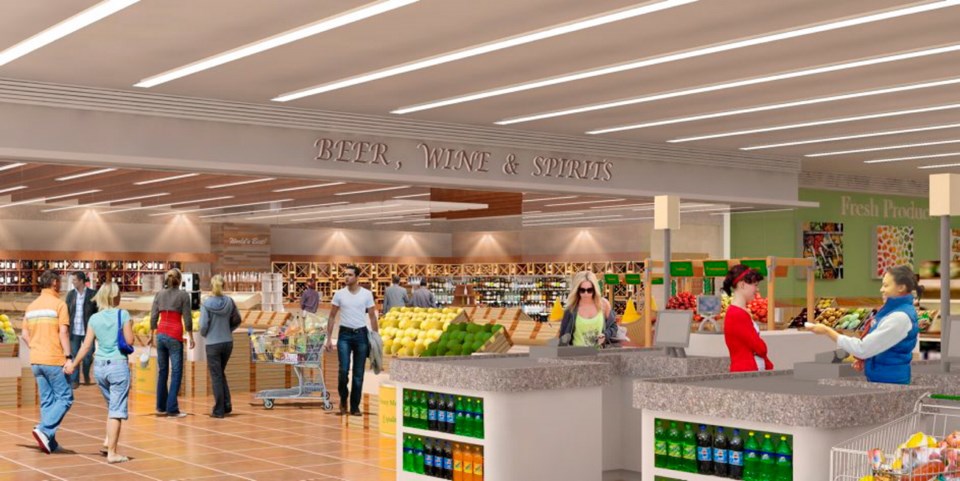 Government liquor stores in B.C. will have to raise their game to stay in business once a significant advantage over the private stores is removed next April.
Government liquor stores in B.C. will have to raise their game to stay in business once a significant advantage over the private stores is removed next April.
Justice Minister Suzanne Anton on Wednesday announced a major pricing change that puts all public and private liquor outlets on the same footing. The effect on the shelf price that consumers pay isn’t expected to be too dramatic. But the establishment of a single wholesale price for all public and private stores could redraw the retail landscape over time.
Government stores now buy product at cost from the liquor distribution branch — a different office of the same government operation — and set the retail price as they see fit, with the private stores following along as best they can.
Starting April 1, a new wholesale price — signalled last March — will be set that all retailers will pay. It’s not yet established, but will be considerably more than what the government stores now pay. Private stores now pay for product based on a confusing series of discounts — ranging from 12 to 30 per cent — off the government’s shelf price. Those discounts disappear in April and they’ll pay the same wholesale price as the government stores. Government stores will also be divorced from the Liquor Distribution Branch, to ease worries about the unfair advantage and cross-subsidization.
Let the era of wide-open competition, within certain limits, begin. The one curb on the new open market will be a minimum price set by government, below which no retailer can go.
The government stores will start the new era with a disadvantage. They pay higher salaries, have more staff and generally occupy more expensive real estate.
And they’ll be paying more for their product. To close the gap, Anton also announced they’ll be able to open Sundays, extend their hours and offer chilled beer and wine.
The B.C. Government and Service Employees Union welcomed the news, saying its members are ready and willing to make government stores work better.
Although a few underperforming government stores might eventually close, it’s unlikely the government will get out of the retail booze business any time soon. The B.C. Liberals several years ago contemplated privatizing the whole operation, à la Alberta, but dropped the idea. The government’s current master agreement with the BCGEU requires them to maintain the stores for at least five more years.
And Premier Christy Clark said the big liquor-policy review over the last year established that people like the government stores. Their selling points are knowledgeable staff and more product diversity. The government stores are also an important channel for B.C. wine and beer products, which get good exposure on government shelves.
Clark said any quick transition away from government stores would make it difficult for B.C. vintners and brewers. And she represents Westside-Kelowna, where a number of them operate.
Also coming next year are some pricing adjustments based on alcohol by volume, which will see more potent products cost more.
The highest-visibility idea of all the liquor changes the Liberals have been tinkering with for the past year is the idea of selling booze in grocery stores. The stores within grocery stores will be allowed to open for business on April 1, although it’s up to the market how that rolls out.
There was also some more streamlining of how products are marked up, with a number of different categories collapsed into a handful. And the markup on beer, which jumps dramatically once a producer reaches a certain volume, will be smoothed out. B.C. brewers will no longer hit the “financial cliff” once they grow their production past a certain point.
The one big imperative through all the changes was to protect the government’s bottom line. It makes almost $1 billion a year selling booze and there’s nothing in any of the adjustments will endanger that revenue stream.
With much more competition to move product, it will likely even grow. Next spring, there will be the potential for people to do the unthinkable — go to a government liquor store and buy a case of cold beer on a Sunday.



